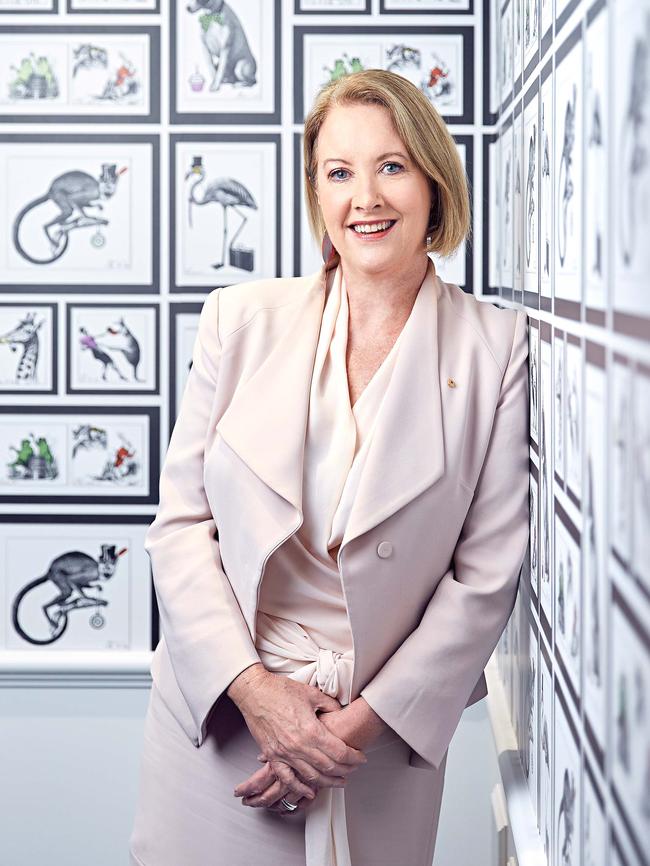
Or is it? The “quit if we could” figure doesn’t look so bad alongside the feedback of workers around the globe in the past couple of years, as the Great Resignation became a popular notion, especially among millennials and zoomers.
Various surveys of knowledge and IT workers have found one-third to three-quarters of workers here and overseas saying they would look for a new job in the next year. And it’s not just the very young – Gen X and baby boomers also consistently show up as keen to move on.
The statistics in Elizabeth Broderick & Co’s report into the workplace culture of EY Oceania, released on Thursday, are probably more reliable than those in many other surveys, so unhappy EY staff cannot be dismissed. However, it is useful to see the restlessness in the context of a bigger trend across the workforce in the post-Covid era.
The report notes long hours have a bad effect on individual wellbeing, team cohesion and retention, and the impact on some individuals is “devastating”.
The report’s tone is stronger here than in the sections about racism, bullying and harassment, given the relatively low levels of all three: 15 per cent of EY people experienced bullying in the last five years; 10 per cent experienced sexual harassment, with the figure for women being 15 per cent; and 8 per cent experienced racism. The latter breaks down to ethnically Indian (16 per cent), Chinese (15 per cent) and Maori (21 per cent). People whose religion is Hinduism (18 per cent) or Islam (17 per cent) were more likely to have experienced racism.
Any bullying, racism or harassment is too much, but the statistics reflect the big effort made by EY (and other firms) to address these problems, particularly bullying and harassment, in recent years.
The numbers are much higher when it comes to overwork as a reason to quit. The report says the desire to leave is particularly strong among senior managers and associate directors (47 per cent) and managers and assistant directors (50 per cent). It notes people at the very top, the partners and associate partners who often work the longest hours, don’t really mind because they have “sufficient agency and reward to manage those hours”. That agency can also mean senior people don’t really understand what it means for the lower ranks to stay back till 8pm on a semi-regular basis.

At first glance, the extra hours of work are stunning – a third of staff routinely work 51 or more hours at least one week a month; 11 per cent work 61 or more hours; and 10 per cent of part-timers work 51 or more hours weekly, fortnightly or monthly. Yet as Broderick points out, EY is not alone in normalising long hours: “Many of the challenges faced by EY Oceania reflect the broader systemic issues within professional services firms in Australia and New Zealand, particularly of balancing productivity and wellbeing, managing workload when time frames are outside the control of the organisation (eg, set by regulators), and ensuring that the make-up of the leadership team and partners truly reflects the diversity of the workforce.”
Broderick could have included law firms and other knowledge work firms in that comment, given the heavy workloads at enterprises that have sacked staff in recent years with the expectation those left behind will pick up the slack.
In some ways, the EY exercise, which came about in part after the death of a young Indian-Australian worker at its Sydney premises last year, is a wake-up call for employers whose culture could be equally exposed by a similar review.
Indeed there is some good news for EY: 78 per cent of staff are confident the firm will make meaningful change on sexual harassment; 74 per cent are confident it will change on racism; 70 per cent are confident it will change on bullying.
The crunch comes with long hours, where only 31 per cent are confident it can change its culture of overwork because long hours are crucial to its business model. EY has announced initiatives to change the model to reduce hours but it will be difficult; apart from anything else, the skills shortages in the sector make it hard to find extra bodies for the work. Recruitment has traditionally been a doddle for the big four, with graduates desperate for jobs at firms that might work you hard but promise rich rewards, partnerships and ultimately board seats for those who survive. It may be harder to attract young staff, given the shadow over professional services caused by the PwC tax scandal, and this warts-and-all review at EY.
The firm says it will adopt all the report recommendations. Time will tell how much reputational damage it sustains. Again, it’s not alone among the big four in facing negative opinion: PwC’s tax scandal and subsequent parliamentary probes mean professional services firms face an unprecedented battle for public support in this country.
Broderick began her review last year but concluded it “against the backdrop of an Australian Senate inquiry into management and assurance of integrity by consulting services. The focus of that inquiry is on conflicts of interest and other unethical conduct.”
She said the inquiry and the PwC episode had raised the issue of the social licence to operate for consulting and assurance firms.
As well as overwork, the big challenge for EY will be developing true opportunity for non-Anglo employees as diversity becomes the new workplace challenge for local business.
Testimony from staff makes for uncomfortable reading.
One comment: “I tried to coach one Indian worker who was excluded. No one wanted to coach (them), people would also say that you can’t put X in front of (the client), that (they are) very enthusiastic but not in the ‘Australian way’.”
And another: “There’s barely any diversity at partnership level, it’s nearly all white, with only about a quarter of them women. There’s barely any other cultural background, so it’s hard for many staff to see where they fit in the organisation. The partners are all the same kind of people, and they are out of touch with the actual workforce. There’s a real irony in getting invited on to a partner’s boat to hear them all talk about when their Ferrari is arriving.
“All of the conversation is so elitist and there no sensitivity to how that all sounds to the staff when they all feel burnt out, demoralised and insulted. It feels like all our minority groups have to fight for space. We talk about gender in recruitment, but we can’t bring in a conversation about LGBTQI+ and cultural diversity in recruitment.”






The news that more than 42 per cent of workers at EY want to leave their jobs because of excessively long hours is a serious vote of no-confidence in the management of the professional services firm.